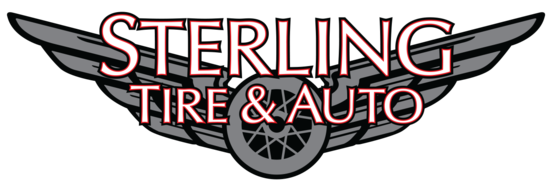TCB your PCV (PCV Valve Replacement)
January 28, 2024
Your gasoline engine goes through some exhausting work. Yes, it's truly exhausting, as in: it produces exhaust! And when your engine starts behaving like it's exhausted, such as running poorly or getting lousy fuel economy, the trouble may be something called a PCV valve.
Did you know it's a series of explosions that creates the power in your engine? The spark plugs ignite a mixture of gasoline and air and BANG! A whole bunch of those and you're engine is humming away. Leftover vapors from those explosions go into your crankcase, which is also a place where engine oil goes. Those vapors still have a lot of unburned fuel in them, and if they had nowhere to go, they'd turn your oil into a thick mess called sludge, not good for a smooth running engine.
Engineers came up with an idea. Re-direct those gasses building up in the crankcase into the engine's air intake and mix them with fresh air. That way the unburned fuel could go through the engine again and produce power. It also means the unburned fuel doesn't pollute the air. The part that makes that happen is called the Positive Crankcase Ventilation (PCV) valve.
Besides reducing pollution and preventing the oil from turning to sludge, the PCV valve also relieves pressure in the crankcase, reducing the potential for oil to leak. One of the reasons you should get your oil changed as frequently as your vehicle's manufacturer recommends is that it helps reduce chances for problems with the PCV valve.
After a while, the PCV valve can itself get gummed up and stick, and the driver may notice oil leaks, reduced power or engine hesitation. That's why it's important to make sure the PCV valve is operating like it should, and often it can be diagnosed during a visual inspection by our technicians. Replacing a PCV valve is usually quick and inexpensive. After it's done, your vehicle will run with the performance and fuel economy you're used to. Goodbye exhaustion!
Sterling Tire & Auto
34701 Van Dyke Rd
Sterling Heights, Michigan 48312
586-264-7775
Need Service?
More articles from Sterling Tire & Auto

If the Shoe Fits (Brake Shoe Replacement [Rear])
February 22, 2026
When it comes to brakes on your vehicle, we all know how important it is to keep them working well because they are vital safety equipment. After all, if you cant slow down and stop, you cant drive safely. While many vehicles use what are called disc brakes, theres another type of brakes that ... More

Rumble from Down Under (Muffler Replacement)
February 15, 2026
Weve all noticed them at one time or another on the street: a car or truck that drives by and the deep roar from their exhaust system sounds like a drag racer on the line. But what happens when that rumble is coming from under YOUR vehicle? Well, it could be a sign your muffler needs attention. ... More

Go with the Flow (MAF Sensor Replacement)
February 8, 2026
If your vehicle has an internal combustion engine, it depends on two things to make propulsion power for you to be able to motor on down the road: fuel and air. The engine mixes the two in just the right proportion so that they can be ignited, creating a series of tiny explosions that are coordi... More








